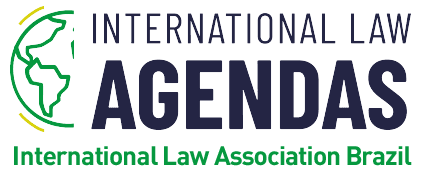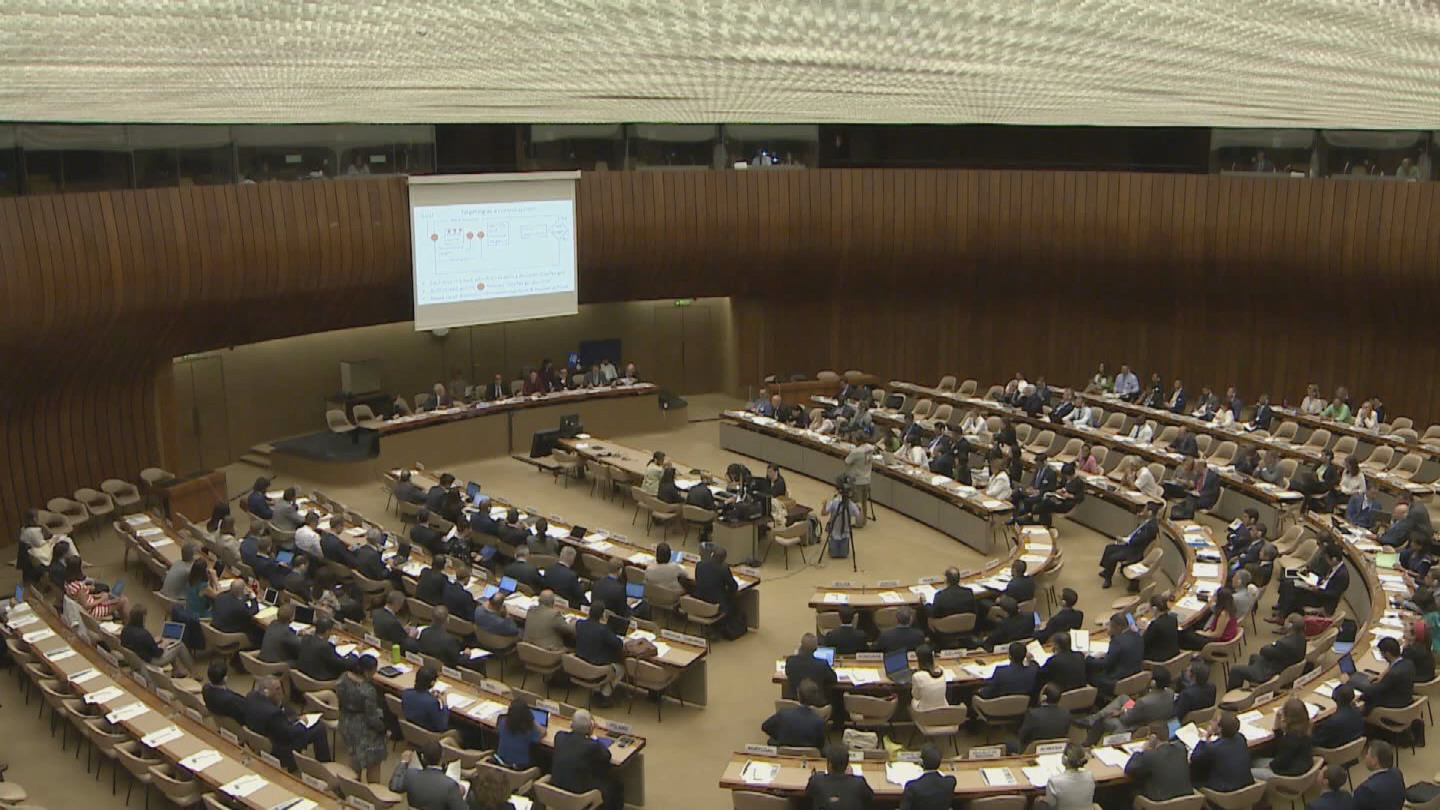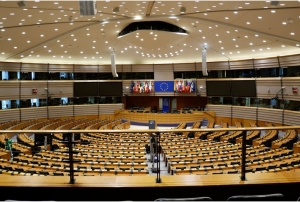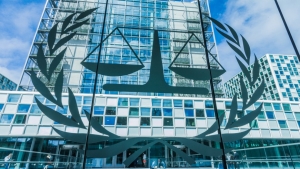The first session of 2022 of the Group of Governmental Experts (GGE) on Lethal Autonomous Weapons (LAWS) ended on March 11th. As Russia tried to prevent the session from starting, Flavio Soares Damico, a Brazilian ambassador who served as chair, had to navigate rough waters.
Although there is still no international agreement on the definition of LAWS, they can be defined as weapons that, once activated, can select and engage targets without further human intervention. The GGE on LAWS has the mandate to assess issues related to emerging autonomous weapons technologies in the context of the objectives and purposes of the Convention on Certain Conventional Weapons (CCW) and has been formally discussing it since 2017.
LAWS are no longer science fiction. They were used, for instance, in conflicts in Libia, as stated in a 2021 report from the United Nations Security Council, which affirms that those LAWS “were programmed to attack targets without requiring data connectivity between the operator and the munition.” This means that deadly force was used without a human decision. Considering the juridical, ethical, and security challenges LAWS pose, the GGE on LAWS must define venues to regulate them.
Last year’s meetings were deemed a failure since the group was unable to agree on rules to regulate LAWS, make recommendations to the Review Conference on CCW, or even define its next work steps. The rule of decisions by consensus led to a tyranny of the minority, as States such as Russia, Israel, India, and the United States requested the removal of essential parts of a draft report prepared by the chair. The CCW 6th Review Conference of the CCW, which establishes GGE on LAWS mandate, took place last December and was also a disappointment as contracting parties, due to consensus rule, had to bow down to Russia’s request of a maximum of 10 days of meeting in 2022. Despite Russias’s argument that the quality of the GGE’s discussion is not dependent on quantity, it seems that the real purpose was to postpone or even prevent discussions. President Putin has long expressed the Russian focus on developing artificial intelligence for warfare. In December 2021, Russia created a special artificial intelligence (AI) department and launched serial production of combatant robots that can fight on their own.
This year, the situation seems to have worsen as the GGE, which already spent half of its 2022 meeting days, could not even adopt an agenda due to Russia’s consistent objections.
Why did Russia try to prevent the meeting?
Russia’s representative repeatedly argued it was under an unequal condition and discriminated against since their experts on LAWS were not able to go to Geneva due to the visa regime and closure of air links. The delegations from China, the Philippines, and Venezuela highlighted the importance of equity and non-discrimination.
Switzerland recalled that according to its international obligation as a host State, it facilitates the entrance of delegates that come to multilateral fora. They noted that a whole set of States needed a visa and affirmed that Switzerland had not refused any visa application submitted to it to participate in this GGE meeting. A significant number of delegations, such as Austria, emphasized that many States face challenges to participate. Belgium added that in those situations, States were flexible, and participation difficulties have never prevented discussions. Norway, Portugal, the US, and Germany affirmed that flight issues and a visa were not a bar but merely an inconvenience, and Russian experts could have come if there was political will. Portugal exemplified that when its experts could not go to Genebra, they used the UNTV and thus provided remote support to diplomats in the room.
Apparently, the reason for Russia’s expert’s absence is the lack of political will, both due to massive opposition of States Against its ongoing attacks against Ukraine and to its interests in using LAWS without constraints, as in last year’s meetings, it has consistently opposed proposals to negotiate a legally binding instrument on such weapons or other measures.
Light at the end of the tunnel?
On March 8th afternoon, the chair announced what seemed to be a light at the end of the tunnel. Considering that the Russian delegation objected to the confirmation of the rules of procedures, the chair, aiming to “break the spell” and thus have an authoritative basis for his actions, asked for legal counsel from the United Nations. The legal counsel confirmed that, as decided by the 6th Review Conference of the CCW, its rules of procedure apply mutatis mutandis to the GGE, regardless if the GGE chooses to confirm them. The definition of the applicable rules of procedure was the only formal progress the GGE made. Soon, the light at the end of the tunnel became a penumbra as the Russian delegation was categorically against the discussion and adoption of the agenda.
The abuse of consensus and the informal consultations outcome
From the outset, Russia attempted to postpone the meeting, by trying to prevent it from starting and engaging in informal consultations. Ukraine’s representative stated that Russia was blackmailing and trying to disrupt the substantive work of the GGE. Most of the delegations requested the meeting to move forward in a formal manner. They recalled that the GGE has the duty to fulfill its mandate, which is to discuss issues related to LAWS according to the objectives and purposes of the CCW and propose solutions. While in the world outside LAWS are an increasing risk, the GGE remained “like a dog running after its tail” in the chair’s words. He called on States “to block this deadlock”. However, despite the chair’s efforts, flexibility and open-mindedness, Russia achieved what it wanted from the outset. The scenario, in the words of the representative of Norway, was of unprecedented obstructionism. After two days and a half of insurmountable obstacles posed by the Russian delegation, the GGE ended up holding informal consultations on substantial issues. The rule of consensus was the tool of abuse that allowed tyranny of one delegation.
Final Considerations
If the last meetings were a disappointment, this first 2022 session is a failure and a mystery since we cannot even know what delegations discussed on the substantial issues from the official channels. How did the meeting end? There were closing remarks at 5 pm on Friday, but as of the time this text was written, they had not been available on the UN website.
In sum, the GGE on LAWS might be facing a crisis as, due to the consensus rule, one delegation may obstruct any formal progress regarding LAWS regulation. Even though different delegations have used it in the past, one, in particular, resourIn sum, the GGE on LAWS might be facing a crisis as, due to the consensus rule, one delegation may obstruct any formal progress regarding LAWS regulation. Even though different delegations have used it in the past, one, in particular, resourced to it this time. There is a Second session scheduled for 25-29 July 2022, and we hope that the group finds its way through and that multilateralism prevails. Meanwhile, the international community might have to think about other forums that do not operate on a consensus basis to address the issue or push it forward.
-
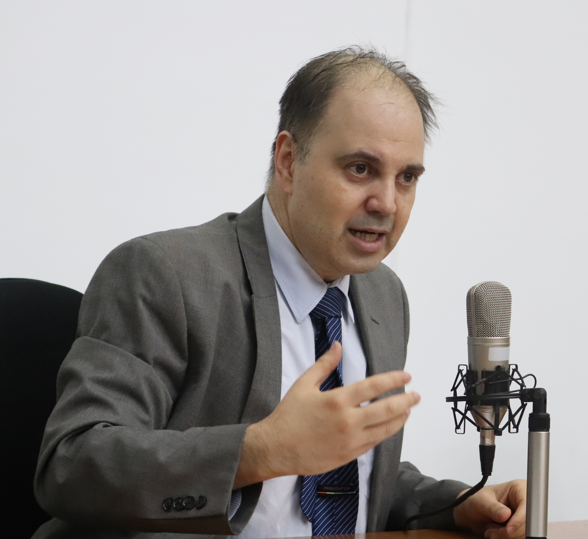
Professor de Direito Internacional na Faculdade de Direito da Universidade Federal de Minas Gerais. Presidente do Ramo Brasileiro da International Law Association.
-
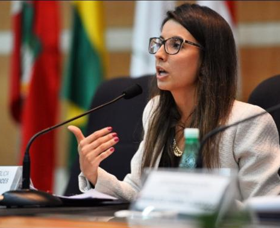
Federal Public Defender in Brazil. L.LM Columbia University. Master of Laws PUC-MG. Phd candidate in international Law with the thesis provisory title: Autonomous Weapons Systems and International Responsibility of States.
